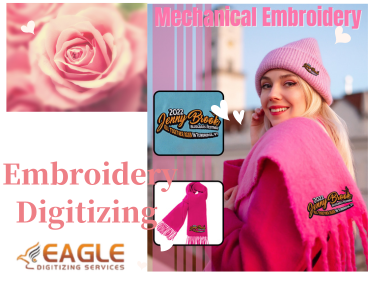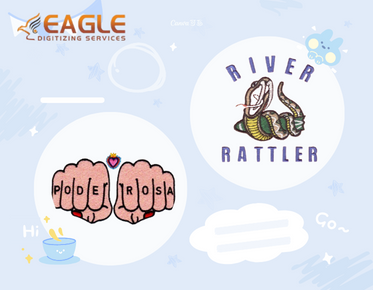How to Pick the Perfect Machine Embroidery Thread
Choosing the right machine embroidery thread is crucial for achieving the best results in your embroidery projects. The thread you select can significantly impact the appearance, durability, and overall quality of your finished piece. In this comprehensive guide, we will explore the various factors to consider when selecting embroidery thread, including material, weight, color, and brand.
Understanding Thread Material
The material of the embroidery thread is one of the most important considerations. Common materials include polyester, rayon, cotton, and silk. Each material has its unique properties:
- Polyester: Known for its strength and colorfastness, polyester thread is ideal for items that will be frequently washed or exposed to sunlight. It is also resistant to chlorine bleach, making it a popular choice for commercial applications.
- Rayon: Rayon thread is prized for its high sheen and vibrant colors. It is softer than polyester and is often used for decorative embroidery on garments that require a luxurious finish.
- Cotton: Cotton thread offers a matte finish and is perfect for projects that require a more natural look. It is less durable than polyester and rayon but is favored for heirloom and vintage-style embroidery.
- Silk: Silk thread is the epitome of luxury, offering a natural sheen and smooth finish. It is ideal for high-end projects but comes at a higher cost.
Thread Weight and Thickness
Thread weight is another critical factor to consider. It is usually indicated by a number, with lower numbers representing thicker threads. Common weights for machine embroidery threads are 30, 40, and 50. A 40-weight thread is the most versatile and widely used for general embroidery projects. Thicker threads (lower weight numbers) are suitable for bold designs, while thinner threads (higher weight numbers) are ideal for fine details.
Color Selection
Color selection is where creativity comes into play. The right color can enhance your design and make it stand out. When choosing colors, consider the fabric color, the design's purpose, and the overall aesthetic you wish to achieve. Many brands offer extensive color charts, allowing you to match colors precisely to your design needs.
Brand and Quality
Not all threads are created equal, and brand reputation can be a good indicator of quality. Some well-known brands include Madeira, Sulky, and Isacord. These brands are known for their consistent quality, colorfastness, and durability. Investing in high-quality thread can prevent issues such as thread breakage and color bleeding, ensuring a smooth embroidery process.
Considerations for Specific Projects
Different projects may require specific types of threads. For instance, if you are working on a project that involves 3D Puff embroidery, you might need a thicker thread to achieve the desired effect. Similarly, projects that involve intricate details may benefit from a finer thread to capture the nuances of the design.
Embroidery Digitizing and Thread Selection
Embroidery digitizing plays a crucial role in how the thread interacts with the fabric. Companies like Eagle Digitizing offer professional embroidery digitizing services that ensure your designs are converted into stitch files that optimize thread usage and minimize breakage. Their expertise in digitizing can help you choose the right thread for your specific design needs.
Environmental Considerations
As sustainability becomes increasingly important, many embroiderers are looking for eco-friendly thread options. Some brands offer threads made from recycled materials or natural dyes, which can be a great choice for environmentally conscious projects.
Practical Tips for Thread Management
Proper thread management can extend the life of your threads and improve your embroidery results. Store threads in a cool, dry place away from direct sunlight to prevent fading and deterioration. Additionally, keeping threads organized by color and weight can save time and reduce frustration during your projects.
Future Trends in Embroidery Threads
The embroidery industry is continually evolving, with new thread materials and technologies emerging. Innovations such as conductive threads for smart textiles and threads with special effects like glow-in-the-dark or color-changing properties are gaining popularity. Staying informed about these trends can open up new creative possibilities for your embroidery projects.
In conclusion, selecting the perfect machine embroidery thread involves considering various factors such as material, weight, color, and brand. By understanding these elements and how they interact with your specific project needs, you can enhance the quality and appeal of your embroidery work. Whether you're a hobbyist or a professional, the right thread choice can make all the difference in achieving stunning results.


.png)
